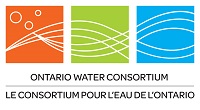Ecotoxicology is critical to understanding the effects of contaminants in our water, and fish are a key indicator in identifying which chemicals are present.
The SOWC is home to world leading ecotoxicological researchers. As part of the SOWC, Dr. Deborah MacLatchy is leading the development of Wilfrid Laurier University’s Centre for Cold Regions and Water Science and is the co-lead for the Ecotoxicology Node for SOWC along with Dr. Glen Van Der Kraak of University of Guelph. Dr. Mark Servos, also a member of the SOWC’s Ecotoxicology Node, is leading the University of Waterloo’s Aquatic Toxicology and Ecosystem Remediation Laboratory.
The lab of Dr. Mark Servos conducts a wide variety research including evaluation of the environmental exposure and effects contaminants such as pharmaceuticals and personal care products in the Grand River Watershed. The lab is also looking at new approaches for risk assessment and risk management of priority substances and effluents, including municipal and industrial contaminants. The lab team works to identify the effects of contaminants on fish and to identify the source of the problems.
When Servos’ team first began their field work, it was being done in the back of a vans or on card tables. There have been significant improvements with the adoption of mobile field labs. The current mobile labs are more efficient and can help researchers examine many more fish in a day. The ability to move sampling locations allows the team to study different possible sources of contamination and the responses of fish to those contaminants. For example, they can set up downstream from a treatment plant, a discharge point or away from urban areas to see differences at each site.
Through the SOWC, the research capacity of the Servos and MacLatchy labs will be increased through the addition of new state-of-the-art mobile labs. The addition of SOWC’s larger mobile labs will mean additional capacity including laboratory type experiments right along the water’s edge. As the part of the SOWC, this capacity will also soon enable directing effluent right from the treatment plant at the City of Guelph into an exposure trailer to look at the impacts of the wastewater on a variety of organisms like rainbow trout or small bodied fish.
Collaboration opportunities within the Ecotoxicology node range across the drinking water, watershed and wastewater nodes, with each of these benefiting from insights of ecotoxicological analysis. The ecotoxicology mobile field trailers will greatly increase the accessibility and capacity to study the impacts of waste waters and specific contaminants on biota in the watershed. The Ecotoxicology node bioassay facility, co-located with the Guelph wastewater pilot plant, will provide unique opportunities for testing the efficacy of treatment technologies for reducing biological impacts.
The SOWC’s ecotoxicology node will include:
- Mobile Field Trailers at Wilfrid Laurier University – allowing for field to lab integration including sample storage & analysis
- Wastewater Facility Pilot Plant Wastewater Facility Pilot Plant in Guelph – allowing for model & endemic fish exposures and direct testing of effectiveness of treatment technologies in reducing biological impacts
- Genomics and Analytical Facilities at the University of Ontario Institute of Technology, University of Guelph and the University of Waterloo – allowing for gene expression analysis of tissues from organisms exposed to waste waters
As we build the SOWC platform we are very interested in talking with potential users and collaborators. Stay tuned for updates or contact us to see how we can work together.

